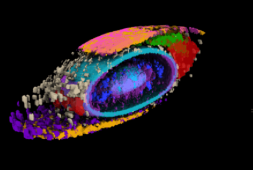9. Finding it Hard to Say How they Feel

The ability to identify and define emotions is a necessary step toward expressing empathy and sympathy. Many persons with autism have alexithymia, or the inability to detect and label their emotions. Alexithymia can occur in people who do not have autism, and the relationship between empathy and alexithymia is being researched. A 2018 study published in the Journal of Autism and Developmental Disorders discovered that people with alexithymia, whether or not they have autism, had a tougher time expressing empathy. People with this illness who did not have alexithymia, on the other hand, were better able to express empathy. The ability to understand and label one’s own emotions appears to be the key to recognizing those feelings in others, according to the study’s authors. Alexithymia is a broad term that refers to difficulty feeling emotions. In truth, this Greek term utilized in Freudian psychodynamic theories loosely translates to “no words for feeling.” While the illness is not widely known, it is estimated that one in every ten people suffers from it. While Freudian views are widely regarded as outdated, public awareness of this disorder appears to be growing. It is frequently encountered as a secondary diagnosis in the context of other preexisting mental health disorders and disabilities, such as depression and autism. This is not to say that everyone with these illnesses has difficulty expressing and identifying emotions. In truth, research reveals that it barely affects a small percentage of the population. People who suffer alexithymia may describe themselves as having difficulty expressing socially acceptable feelings, such as happiness on a happy occasion. Others may also struggle to identify their emotions. Such people are not necessarily apathetic. They may not have as strong emotions as their peers and may struggle to feel empathy. Alexithymia is poorly understood. It’s possible that it’s inherited. The illness could potentially be caused by insula injury in the brain. Some studies have linked insula lesions to apathy and anxiety.



